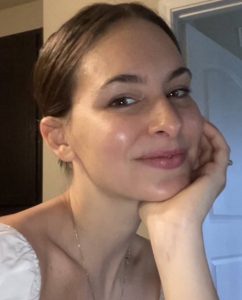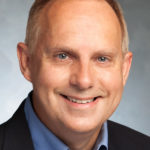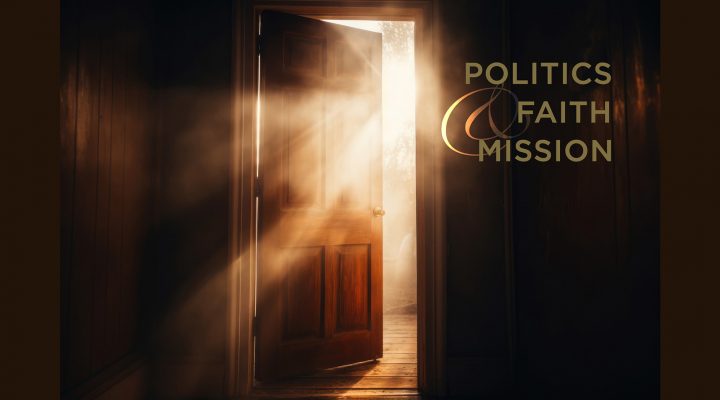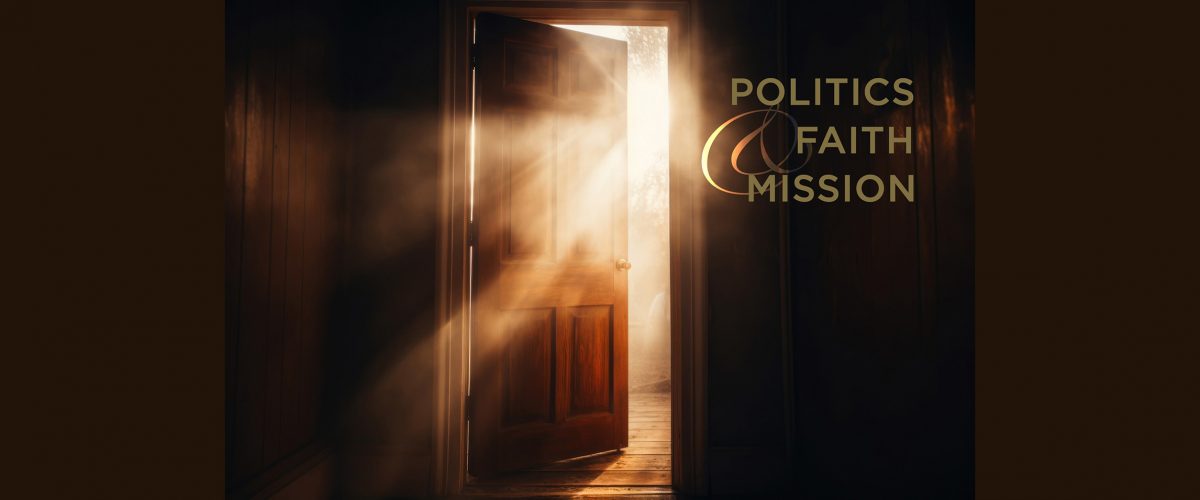I first met Jillian Mason Shannon last fall in San Antonio, but I’d known of her for some years because of my friendship with her father, the great pastor and preacher George Mason. What I knew long before I met Jillian was that she is smart, thoughtful and seeking ways to engage people in conversations about things that matter. So it did not surprise me at all when she told me about Neotopia, the theological book store she’s launched in San Antonio as a venue for serious conversation that bridges divides. I’m grateful to Jillian for the chance to talk with her about how theology can be part of our lives outside of church and how it can speak into the challenges of our present moment.
Greg Garrett: Jillian, your dad, sister and brother-in-law are pastors, and you were yourself theologically trained. But instead of going to work in a formal church setting, you chose to open a bookshop, Neotopia. Could you talk with us about that decision and what informed it?
Jillian Mason Shannon: Because I come from a family of pastors, I know what being a pastor entails — and it’s a whole lot more than preaching on Sunday morning. I didn’t necessarily see the pastoral role in myself, but I followed in my family’s footsteps as theologians. We are all obsessed with talking about theology as much as possible (shout out to the non-theologians in the family who have to endure these conversations).
In seminary, I discovered my niche, which is science and theology. Someone whose work I admire is Ilia Delio. However, while Delio’s audience is primarily Christian and her overall mission is to transform the way Christians understand science in relation to their religion, my intention may be the reverse: to help the non-religious (or anti-religious) understand religion in relation to science.

Jillian Mason Shannon
Because I am in the minority of people who experienced a more intellectual version of Christianity from the get-go, I feel almost a responsibility to defend it against its mainstream reputation, not in order to convince others to believe what I believe, but so we can find common ground and evolve together.
In 2022, I started an Instagram account (@__neotopia) in which I shared some theology and philosophy I found to be particularly mind blowing, and my hunch was confirmed that my audience is primarily secular. When I was ready to form a community offline, I felt it needed to be in a secular setting — not a church or a university but something more accessible and free for anyone.
GG: You conceived of Neotopia as a space where diverse people could ask big questions and sit with uncomfortable differences. How have you seen that work in your space, and what lessons could you offer for the larger church and culture from what you’ve witnessed?
“Perhaps we could all agree to humble ourselves and sit with the uncomfortable feeling of unanswered questions and enjoy the process of exploring new insights together.”
JMS: The most common feedback I get from my classes is that the participants feel liberated to be themselves and say things they may not feel comfortable saying in a church setting.
If I had to offer suggestions to church leaders it would be to encourage more question-asking, rather than rushing to fill in the gaps. Sometimes when we rush to an answer by pointing to what the Bible says or what the church fathers established so long ago, questioning it feels like a betrayal. Perhaps we could all agree to humble ourselves and sit with the uncomfortable feeling of unanswered questions and enjoy the process of exploring new insights together.
GG: I’ve been talking to a lot of folks this year who’ve walked away from church because they think it’s sold its soul to a political party, aligned itself with white nationalists or simply strayed too far from the teachings of Jesus to be recognizably Christian. What are the people who don’t belong to a faith community seeking when they come to Neotopia, and what kinds of comfort or meaning do they find in your space? What guidance do you offer about deconstructing and reconstructing a useful faith for those who want that?
JMS: A lot of people who come into my space have had a similar experience to one you’re describing. Often, they were raised in an extremely conservative environment, and their instincts told them something wasn’t right. Still, they don’t want to let go of their spiritual life, and they yearn for a place to grow.
At Neotopia, we deconstruct and reconstruct at the same time. When we introduce a new way of seeing things — be it a biblical interpretation or a theological concept — we do so by leaning on Scripture and theologians that came before us. And we make sure all of those things align with science and with personal experience.
We never end a class in a puddle of deconstruction, but with a new, invigorating, research-backed perspective that is applicable to daily life and promotes human and cosmological flourishing. Therefore, it tends to end with hope — not in the form of empty platitudes but in a sense of better understanding our existence.
GG: You talked with the San Antonio Report about what you called the “third option,” an alternative to the purely binary kinds of discourse and division we often see. (I’m Episcopalian, and for centuries we’ve taught the via media, “the middle road.”) Could you talk with us theologically about that? What informs your desire to create that third option, and how has it been received?
JMS: During the Trump era, it felt like everyone was exposed for where they stood on each issue, and the world was split into two sides. Like so many, I got angry at the injustices I saw, and I didn’t understand how the “other side” couldn’t see things the same way I did. Eventually my anger started to feel like hatred, and I knew something in me needed to change.
“Eventually my anger started to feel like hatred, and I knew something in me needed to change.”
The social media world felt like a prison of the two sides. We were all reposting slogans and well-articulated jabs that made perfect sense in their context but they didn’t really move us forward and rarely did they change anyone’s mind. They usually just deepened the binaries that already existed.
When I started seminary, a professor of mine taught me the difference between an argument and an assertion. Assertions are like those slogans and social media posts — they’re emotional points that kind of float on their own. They do a great job of reiterating the way we already feel, but they don’t typically move the conversation forward. An argument, on the other hand, takes a wider perspective as it builds off scholars who came before us and moves the conversation one step further. The result tends to be a more nuanced “third way.”
This is not a compromise of the two sides, but something else. It requires discernment, study and prayer and the third way usually has the power to reach across the divide and help us mend.
This is much of what I try to do at Neotopia. The reception has been good. We attract people of all kinds, there has been zero combative energy so far, and the nuanced perspectives seem to be refreshing to those who feel trapped in the binaries.
Theologically speaking, we can look to the Trinity as a model. The Trinity represents the relational flow of the universe, and that three-in-one offsets our temptation for dualism.
GG: I’ve been asking lots of people about what they’re reading, listening to and watching for comfort and hope, and I’d be remiss if I didn’t ask the owner of a bookstore that question. Where are you finding joy and peace in these turbulent times? Are there writers you’d recommend to us to help us make sense of 2024, and if so, what might we expect from them?
JMS: I’m always reading two to four books at once. Reading books, whether they’re from 2024 or 1624, rather than solely taking in social media or the news, gives a much broader perspective on life. So that has become a major comfort to me in the last few years.
Currently I’m reading The Sense of the World by Jean Luc Nancy, Down the Drain by Julia Fox, and — true story — The Gospel According to James Baldwin by you. I’m trying to read every book I sell — at least enough to endorse it.
An author I’d like to recommend is Brian Thomas Swimme (Journey of the Universe, Cosmogenesis). He is a cosmologist who writes about the scientific story of the world in such a romantic way that it feels spiritual. I don’t believe he ever directly mentions God, but he doesn’t have to. Perhaps the theology of it all comes across even better without naming it.
Reading Swimme puts the evolution of life into perspective and leaves one with a sense of deep hope. While things may feel really scary at times, science and history show that life prefers more life, and even down to the molecular level, life persists through death.
Read more about Neotopia here.

Greg Garrett
Greg Garrett teaches creative writing, film, literature and theology classes at Baylor University. He is the author of two dozen books of fiction, nonfiction, memoir and translation, including the critically acclaimed novels Free Bird, Cycling, Shame and The Prodigal. His latest novel is Bastille Day. He is one of America’s leading voices on religion and culture. Two of his recent nonfiction books are In Conversation: Rowan Williams and Greg Garrett and A Long, Long Way: Hollywood’s Unfinished Journey from Racism to Reconciliation. He is a seminary-trained lay preacher in the Episcopal Church. He lives in Austin with his wife, Jeanie, and their two daughters.
More from this series:
Politics, faith and mission: A conversation with Bishop Mariann Edgar Budde
Politics, faith and mission: A conversation with Vann Newkirk II
Politics, faith and mission: A conversation with Sarah McCammon
Politics, faith and mission: A conversation with Winnie Varghese
Politics, faith and mission: A conversation with Kaitlyn Schiess
Politics, faith and mission: A conversation with Russell Moore
Politics, faith and mission: A BNG interview series on the 2024 election and the Church
Politics, faith and mission: A talk with Tim Alberta on his book and faith journey
Politics, faith and mission: A conversation with Jemar Tisby
Politics, faith and mission: A conversation with Leonard Hamlin Sr.
Politics, faith and mission: A conversation with Ty Seidule
Politics, faith and mission: A conversation with Jessica Wai-Fong Wong


